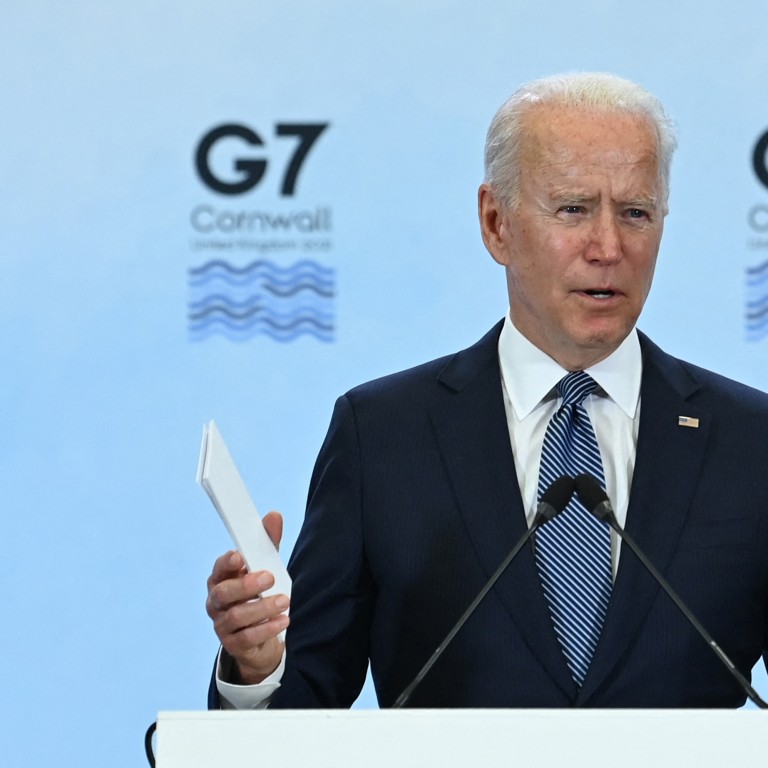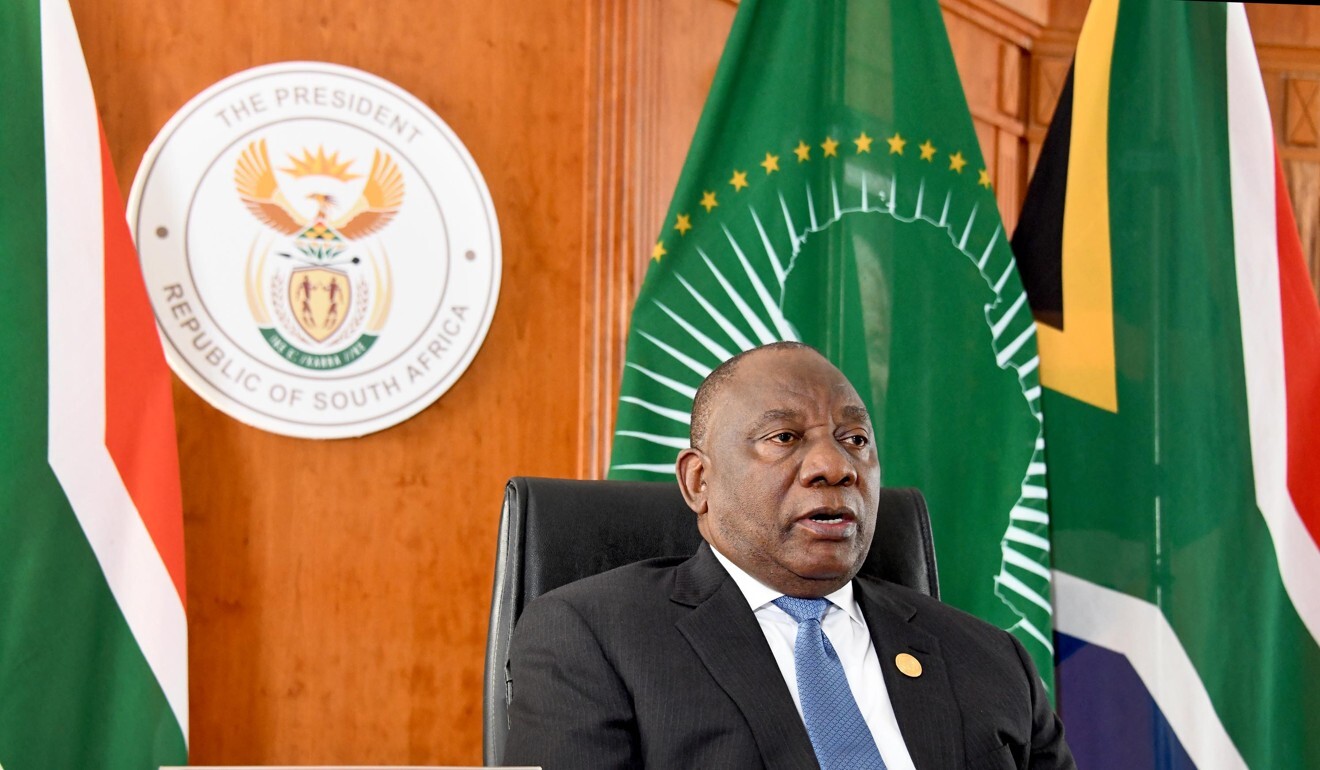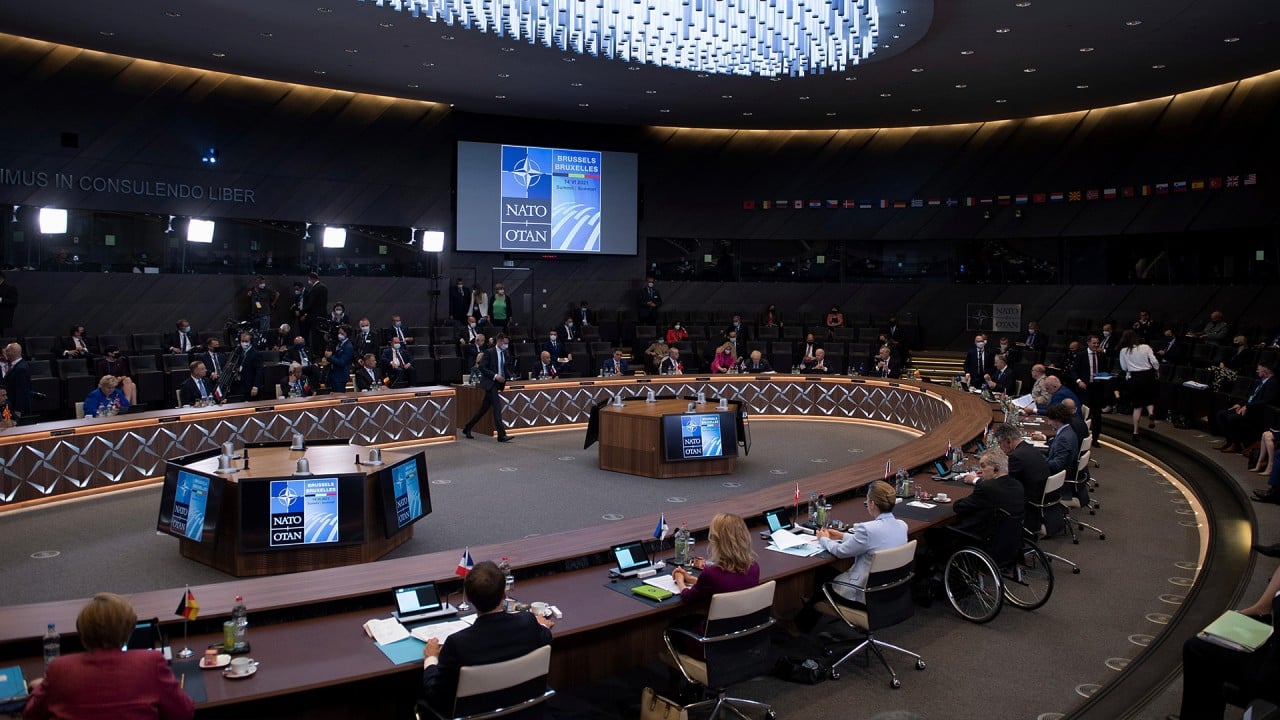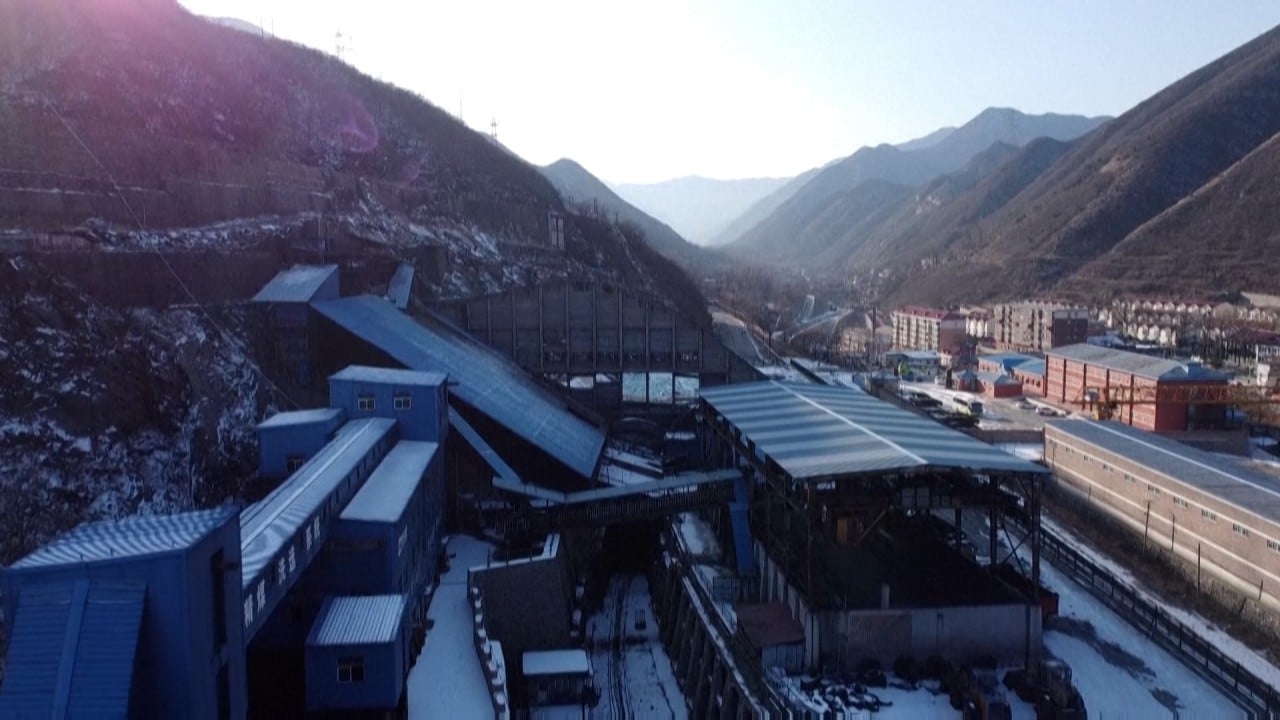
Can the Build Back Better World plan really undo China’s Belt and Road Initiative in Africa?
- The world’s richest countries unveiled their own infrastructure plan as a way of countering Chinese influence on the continent
- But Africa needs an estimated US$150 billion a year post-Covid-19 and many believe there is a need for both schemes
Ramaphosa had been asked whether he was worried that the planned investment in African infrastructure was not the right way “to push back at China” and replied: “We are a continent of many countries with huge deficits regarding infrastructure … We want partner-type investments. We are open to business and investments. We welcome those who come, on good terms of course.”
Ramaphosa said the commitment from the G7 must not be looked at negatively and “is not a threat of pushing China out”. He added: “We don’t see the exclusion of one at the expense of another. We see inclusion.”
The South African leader’s comments are echoed by many observers, who say there is plenty of room for both “rival” projects. Africa still has a huge infrastructure deficit and the growing interest from the West can complement China’s funding of railways, highways, ports and power plants.

“The African continent itself would need an estimated US$150 billion per year at least for the next 10 years. But for the last two decades or so, it is Chinese entities that have been the major financiers of infrastructure in Africa, mostly through the [Belt and Road Initiative],” Usman said.
She said more than 60 per cent of Chinese financing for Africa’s public sector went on infrastructure whereas financing from Organization for Economic Cooperation and Development countries has primarily focused on social sectors.
What is a global minimum tax, and how will it work?
B3W has been framed as “a values-driven, high-standard, and transparent infrastructure partnership led by major democracies to help narrow the US$40+ trillion infrastructure need in the developing world”.
The G7 plan will source private capital to help invest in global infrastructure and focus on four areas: climate, health and health security, digital technology, and gender equity and equality.
Chris Alden, an international relations professor at the London School of Economics, said the “rival” programmes could also serve a point of departure between standards and practices.
B3W wants its projects to meet the highest global standards in areas such as procurement transparency and related governance issues – a regular criticism of the belt and road.

06:33
G7, Nato rhetoric mark ‘seismic shift’ between China and the West
The United States and some European countries have accused Beijing of burdening countries with loans that they cannot repay.
Alden said while the belt and road “is most notable for its global ambitions and, at least in nominal terms, global reach, B3W is still in the making so it would be difficult to know at this point how ambitious it hopes to be in geographical terms”.
Last month during an online meeting with French President Emmanuel Macron and German Chancellor Angela Merkel, Chinese President Xi Jinping said he welcomed European investment in Africa, but invited them to join the Initiative on Partnership for Africa’s Development initiated by China.
Alden said collaboration between China, France and Germany in African development was possible – “indeed, at the project level, there are a few examples already”.
China accuses G7 leaders of ‘small circle’ power politics after rebuke
But he continued, a “fundamental commitment of resources to the [belt and road] is unlikely at this point given the concerns voiced by their domestic industries regarding competition and the ‘values gap’ which currently divides them”.
John Stremlau, an international relations professor at the University of the Witwatersrand, Johannesburg in South Africa, said if the “geostrategic rivalry, especially between China and America, is to be managed peacefully, they will need areas of demonstrable cooperation that serve the interests of all participants”.
“It is really for African leaders to assert Africa’s agency regarding [the belt and road] and the US return to Africa,” he said.
Analysts said in an ideal world the two superpowers would cooperate but realistically that would be very difficult to achieve right now.
China seeks common ground with Europe in Africa through infrastructure
Yuen Yuen Ang, an associate professor of political science at the University of Michigan and author of How China Escaped the Poverty Trap, said the Chinese and Western initiatives had different strengths and weaknesses.
“In the Chinese case, the advantage of [the belt and road] is that it is large scale, decisions are made quickly, and Chinese money pours in,” she told a virtual event organised by the Carnegie Endowment for International Peace on whether the initiative and B3W could coexist in Africa.
She said Chinese capital tended to be more patient, and “is willing to invest in long-term projects that private investors otherwise may not be interested to consider”.
However, this comes with some disadvantages. She said Chinese projects tended to lack consultation, transparency, and accountability – “things that are valued in democracy”.
“The advantage of Western initiatives is that due diligence is done, every step is carefully documented, and we care about assessing social impacts before implementation,” she said.

02:06
Chinese cash funds African coal plants despite environmental concerns
But the downside was that the process was slow, indecisive and, from a politician’s point of view, bureaucratic and a real hassle, Ang said.
“The G7 countries should avoid the perception that they should match China on its scale and speed. That is not wise or realistic because that is playing to the weakness of the G7 nations,” she said.
“The strength of democracy is that we do things slowly, deliberately but generally the quality, transparency and accountability are higher.”
Alan Sproule, a London-based emerging markets specialist, said it was unlikely that B3W would match the belt and road in scale.
“[The belt and road] worked because the Chinese government took significant counterparty risk,” Sproule said. “European governments would need to do the same.”
China’s rail spending spree in Africa is over but it still dominates
He said the problem was that many African governments, such as Kenya and Zambia, were over-indebted, to the extent that even the Chinese government no longer had an appetite for additional projects in these countries.
Sproule, a former executive director of advisory and infrastructure finance at Standard Chartered Bank in South Africa, said collaboration was essential because Chinese contractors could provide the lowest cost contracts but, with China being overexposed, the contractors would need someone else to provide credit enhancement – something B3W could provide.
“[The belt and road] has had limited success. B3W can be more successful than [the belt and road] if the focus is on public-private partnership rather than on government-to-government contracts. This ensures sustainable development without leading to over-indebtedness,” Sproule said.

